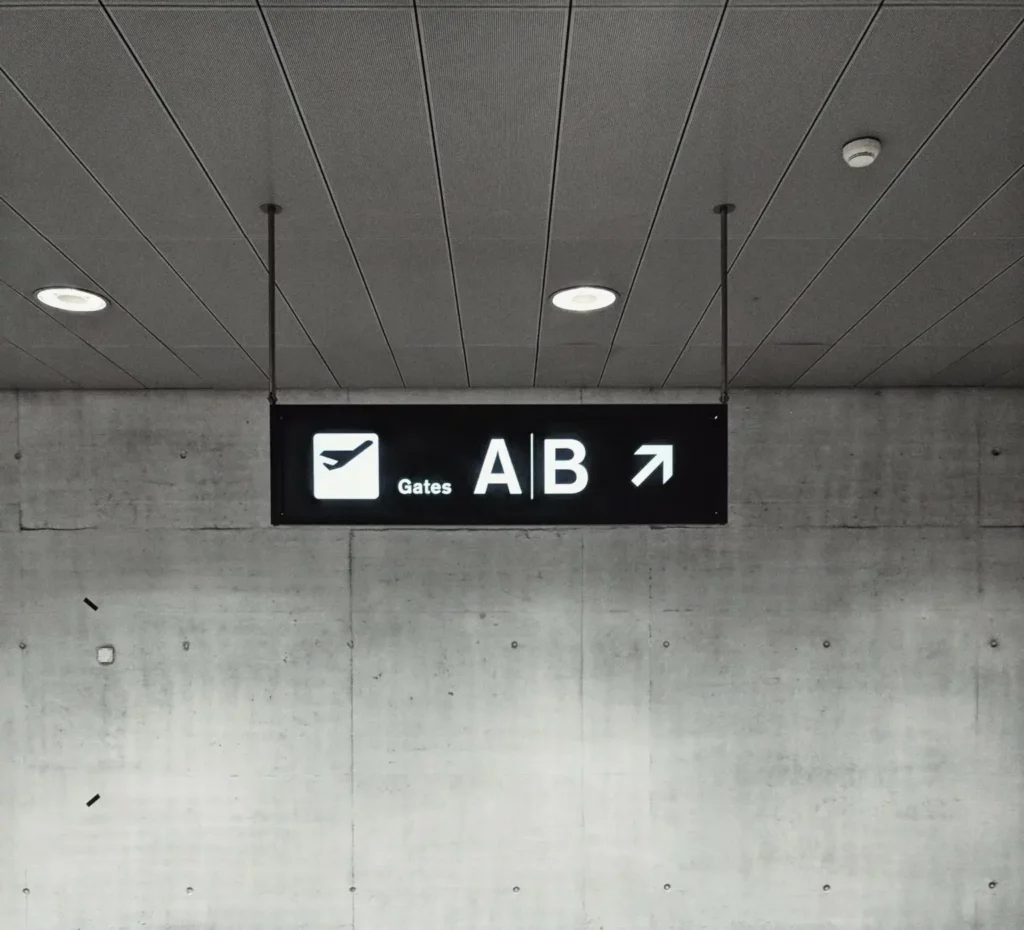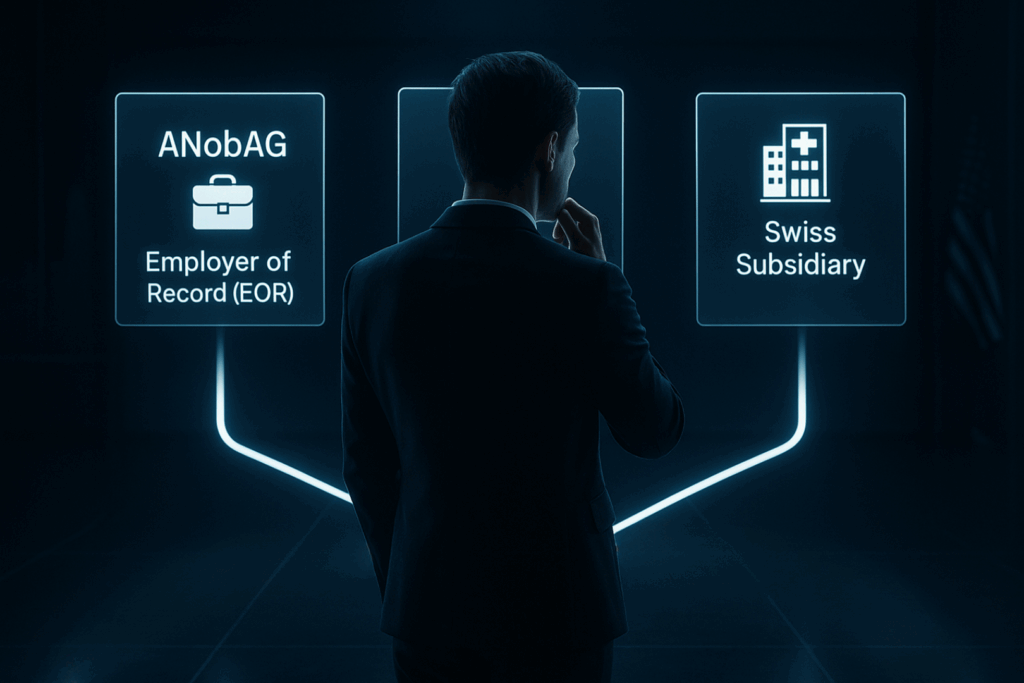What Happens to Swiss Social Security Credits When Moving Away?

If you have lived and worked in Switzerland for some time and then want to move to another country, you will inevitably have to deal with the question of what happens to your accumulated Swiss social security credits. We would like to give you an overview of how contributions to AHV and other insurances are treated when you move away.
Nationality Determines the Reimbursement of the AHV Pension
Depending on the nationality of the person moving away from Switzerland, the AHV pension will either be paid out upon retirement or the earnings already paid will be refunded.
Social Security Agreement Between Switzerland and Home Country
If there is a social security agreement between the departing person’s home country and Switzerland, the AHV pension is paid out when the person reaches retirement age. The prerequisite for this is that the person concerned has paid AHV contributions in Switzerland for at least one year.
Switzerland has social security agreements with EU and EFTA countries (except Romania, Estonia, Latvia, Lithuania, Malta and Poland), as well as with the following third countries: Australia, Bosnia and Herzegovina, Brazil, Canada, Chile, India, Israel, Japan, Kosovo, Montenegro, Northern Macedonia, Philippines, San Marino, Serbia, South Korea, Turkey, Uruguay, USA, PR China excluding Hong Kong, Macao, Taiwan, UK.
If the person is entitled to AHV benefits, i.e. has reached the normal retirement age (men: 65 years, women: 64 years), an application for pension benefits is submitted to the relevant Swiss compensation fund. Before leaving Switzerland, you should ask your last employer which fund is responsible and make a note of it.
No Social Security Agreement Between Switzerland and Home Country
If the person moves to a country with which Switzerland has not concluded a social security agreement, there is no longer any entitlement to an AHV pension when the person leaves. In this case, however, the contributions paid in can be refunded without interest if the following criteria are met:
The person moving away has paid AHV contributions for at least one year.
The person and his/her family members (spouse and children under 25 years of age) must also leave Switzerland or provide proof that the departure is planned in the near future
Children between the ages of 18 and 25 must have completed their education if they intend to remain in Switzerland
The corresponding application for reimbursement of contributions can be submitted before the departure with proof that the departure is intended. The refund will be made when the person is definitely residing abroad.
Pension Fund Payout in the Event of Departure
As with the AHV pension, the nationality of the person leaving or the country to which he or she is leaving determines what happens to the accumulated contributions to the pension fund (pillar 2).
Moving to a Foreign EU or EFTA Country
In most cases, the credit balance in the pension fund is made up of both the compulsory part and the non-compulsory part. This distinction is important when moving to an EU or EFTA country, because only the portion from the extra-mandatory part is paid out.
The mandatory portion is deposited in a vested benefits account and becomes due upon reaching AHV retirement age. At the earliest, the mandatory portion can be drawn five years before reaching this age.
Moving to a Third Country
If the person moves to a third country, he/she can have the entire pension fund assets (compulsory + non-compulsory) paid out upon departure. The application is made directly to the pension fund.
Credit Balance From Pillar 3
If you have voluntarily made provisions for pillar 3, the contributions paid in will be paid out when you leave Switzerland. It does not matter what nationality the person leaving has or to which country they are leaving.
Do the Benefits Also Apply to Survivors?
If survivors live in an EU or EFTA member state, widows’ and orphans’ pensions will be paid to them if the person formerly liable to pay contributions in Switzerland has died.
However, if a widowed person is already receiving a pension, there is no entitlement to an additional survivor’s pension. Switzerland will then pay either the old-age pension for the person concerned or the survivor’s pension of the spouse – depending on which benefit is higher.
Depending on the EU or EFTA state in which the survivor lives and receives his or her pension, benefits from there may be reduced if a survivor’s pension is drawn from Switzerland. In such a case, it is therefore advisable to check before filing an application for a survivor’s pension in Switzerland whether the survivor is entitled to a pension from Switzerland. In such a case, it is therefore advisable to check what effects this will have on other pension components before applying for a survivor’s pension in Switzerland.
Do Payouts Incur Taxes?
When Pillar 2 and Pillar 3 assets are paid out, they are taxed at source – i.e. in Switzerland. The withholding tax is levied by the cantons and can therefore vary greatly from canton to canton. In each case, the tax rate of the canton in which the vested benefits foundation is domiciled applies.
The person moving away can have the withholding tax refunded within a period of three years. The prerequisite for this is that Switzerland has concluded a double taxation agreement with the person’s new country of residence.
If you are not sure in your individual case how your withdrawals will be taxed, or which regulations apply with regard to AHV contributions when you move away, contact a tax expert. They can show you your options so that you can leave Switzerland with the lowest possible tax burden.
Tax Return Cost Calculator
Do you seek a quick idea of the cost of our tax return service? If we have sparked your interest, you can send it to us without reservations, as it is a non-binding request. We will contact you promptly to discuss your situation with you.


